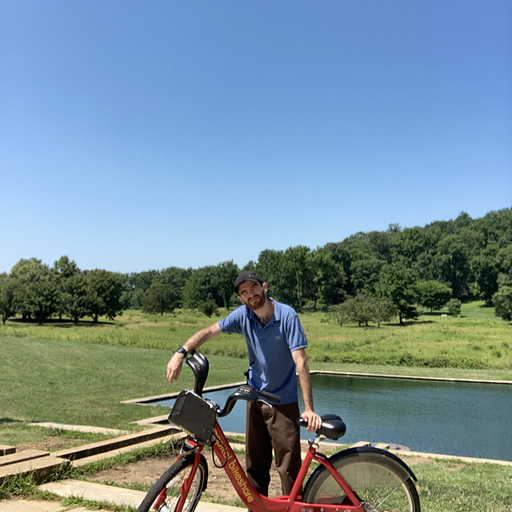I solve sustainability issues using a mix of passion, domain expertise, and data science. I love exploring how software can be used to make our lives better, whether by reducing food waste through predictive models, separating our garbage by computer vision and classifications, or clustering between countries on their progress toward the United Nations (UN) Sustainable Development Goals (SDGs). You can usually find me at the library learning linear algebra, trying out a new machine learning algorithm, or exploring a new programming language.

I didn’t set out to become a data scientist. My journey began at Cornell University, where I studied organizational behavior (OB) with the goal of becoming an industrial-organizational (IO) psychologist. Yet, my drive to achieve sustainability goals and my belief in the power of statistics to drive meaningful action ultimately reshaped my path.
A service trip to Haiti in 2013 was a turning point. I witnessed firsthand how inadequate waste management infrastructure—no dumpsters, garbage trucks, or recycling bins—creates a vicious cycle: littering, illegal dumping, and open burning lead to crime, environmental degradation, and air, soil, and water pollution. The data was clear: island nations face losses of nearly $2.5 billion annually if we fail to overhaul the outdated make-take-waste model. Garbage, the most visible and visceral element of sustainability challenges, became my unlikely passion. This experience ignited my interest in data science and inspired me to earn a master’s degree in sustainability management from Stevens Institute of Technology.
I shied away from programming initially. However, that changed when, six years ago, in graduate school, I started using R and SQL for statistical analysis and data management. Tools like R Studio transformed how I approached data, showing me the limitations of Excel for handling multidimensional datasets. Around the same time, I embraced the command line and Git to manage and share projects. A year later, while taking 100 Days of Code, I transitioned to Python—a shift that expanded my skills and sparked my love for programming. Since then, I’ve deepened my expertise, diving into languages like JavaScript and Go and discovering the endless possibilities software development offers.
Developed waste diversion recommendations for the Trust for Governors Island by analyzing a 2018 waste audit (Excel).
Published a 7-page report on sustainability aptitude for Stevens Institute of Technology by developing, disbursing, and analyzing the results of a campus-wide survey in 2020, in addition to recommending best practices for educating students on environmental sustainability (Excel).
Published a 10-page report profiling greenhouse gas (GHG) emissions of Dairy Farmers of America (DFA) prominent sources, showing viability of achieving its Science-based Target (SBT) in 2020 (R and Markdown).
Visualized how well students incorporate sustainability into their engineering capstone design projects, comparing their grades on sustainability assessments against their final grades, and presented results at a peer conference in 2021 (R and Markdown).
Programming: R, Python, SQL/NoSQL, HTML/CSS, JavaScript/TypeScript (React)
Data Science & Full Stack Packages: IPython/Jupyter, Pandas, NumPy, SciPy, Matplotlib, Seaborn, Scikit-Learn, Pytorch, Tensorflow, Streamlit, FastAPI, LangChain, Flask, Beautiful Soup, Selenium, SQLAlchemy, Pydantic, TKinter
No-code Programming: Tableau, Notion, Airtable, Power BI
Developer Tools: Zsh, Bash, CLI (Unix), Git, GitHub, Postman, Markdown, LaTeX, Google Colab, Anaconda, Visual Studio Code, PyCharm, Word, Excel, PowerPoint
I love to bike, learn, volunteer, swim, spend time with friends...all of the nerdy stuff you'd expect from someone who likes to play on his computer.
I also blog regularly: on civic issues, reducing food waste, recycling, startups, and so much more. Whatever crosses my mind and I have an insight, I write about it.
I make software and data projects for fun, too. Check a few samples out by clicking "Projects" below!